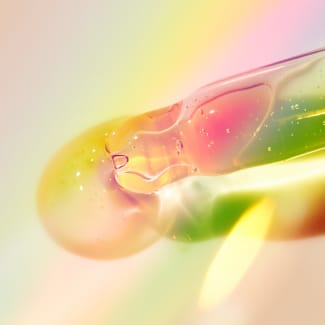Data: Good
Citrus Reticulata Oil
- Products with this ingredient are allowed for use in EWG VERIFIED but must meet use restrictions and warnings based on EWG review of company data.
- This ingredient's score is higher if used in product forms that are inhalable (e.g., sprays, powders) because of respiratory concerns. The score is lower if used in product forms that have lower risk of inhalation (e.g., solids, liquids)
- This ingredient's score is higher if used in products that may not meet industry safety guidelines or U.S. and international government requirements. The score will be lower if used in products that meet these safety guidelines and requirements.
Other Concerns
Use restrictions (moderate), Persistence and bioaccumulation (moderate), Non-reproductive organ system toxicity (low_moderate), Ecotoxicology (low), and Irritation (skin, eyes, or lungs) (high)SYNONYMS
Restricted
Restricted: EWG VERIFIED products cannot contain this ingredient without adequate substantiation
Oil from the whole plant of any subspecies with accepted scientific name of C. reticulata, including tangerine (C. reticulata blanco), mandarin (C. nobilis), and satsuma (C. unshiu).
Common concerns
See how this product scores for common concerns.
-
LOWCancer
-
HIGHAllergies & Immunotoxicity
-
LOWDevelopmental and Reproductive Toxicity
-
MODERATEUse Restrictions
Ingredient concerns
- CONCERNS
- DATA SOURCES
Products with this Ingredient


| moisturizer | 41 products |
| bar soap | 13 products |
| exfoliant/scrub | 24 products |
| bubble bath | 10 products |
| lip balm | 13 products |
| body oil | 21 products |
| fragrance for women | 11 products |
| facial moisturizer/treatment | 12 products |
| around-eye cream | 1 products |
| toners/astringents | 2 products |
| bath oil/salts/soak | 25 products |
| antiperspirant/deodorant | 8 products |
| baby shampoo | 4 products |
| body wash/cleanser | 23 products |
| shampoo | 17 products |
| baby lotion | 6 products |
| conditioner | 8 products |
| liquid hand soap | 13 products |
| baby powder | 3 products |
| facial cleanser | 17 products |
| hair treatment/serum | 13 products |
| mouthwash | 1 products |
| body spray | 10 products |
| baby soap | 2 products |
| hair spray | 2 products |
| baby oil | 1 products |
| body powder | 3 products |
| makeup primer | 1 products |
| setting powder/spray | 1 products |
| hand sanitizer | 2 products |
| lipstick | 7 products |
| mask | 6 products |
| foundation | 17 products |
| hand cream | 4 products |
| beard oil | 3 products |
| beard care | 3 products |
| hair styling aid | 2 products |
| fragrance for men | 3 products |
| lip balm with SPF | 1 products |
| serums & essences | 5 products |
| foot moisturizer | 2 products |
| damaged skin treatment | 1 products |
| after shave | 1 products |
| recreational sunscreen | 4 products |
| toothpaste | 2 products |
| daily use with SPF | 1 products |
| shaving cream | 1 products |
| styling gel/lotion | 2 products |
| detangler | 1 products |
| foot odor control | 1 products |
| foot cleansing | 2 products |
| body firming lotion | 2 products |
| anti-aging | 1 products |
| blush | 1 products |
| baby sunscreen | 2 products |
| makeup remover | 1 products |
Allergies/immunotoxicity


| CONCERN | REFERENCE |
|---|---|
| immune system or allergies - weight of evidence unknown/unassessed | Cosmetic Ingredient Review (CIR) |
| Limited evidence of dermal toxicity or allergies | European Chemicals Agency (ECHA) |
| Limited evidence of [[system]] toxicity or allergies | Peer Reviewed Literature |
| Possible human immune system toxicant or allergen | European Union |
| Limited evidence of immune system toxicity or allergies | US. National Library of Medicine, |
| Human toxicant or allergen - strong evidence | Environmental Protection Agency (EPA) |
| Known human toxicant or allergen | EU Cosmetics Directive |
Irritation (skin, eyes, or lungs)


| CONCERN | REFERENCE |
|---|---|
| skin/eye/lung irritation - weight of evidence unknown/unassessed | Cosmetic Ingredient Review (CIR) |
| Classified as [[system]] irritant | Peer Reviewed Literature |
Organ system toxicity (non-reproductive)


| CONCERN | REFERENCE |
|---|---|
| Classified as not expected to be potentially toxic or harmful | Environment Canada |
| Classified as medium human health priority | Environment Canada |
Ecotoxicology


| CONCERN | REFERENCE |
|---|---|
| Not suspected to be an environmental toxin | Environment Canada |
| Wildlife and environmental toxicity | Peer Reviewed Literature |
| Suspected to be an environmental toxin | Peer Reviewed Literature |
| Suspected to be an environmental toxin | Environment Canada |
Multiple, additive exposure sources


| CONCERN | REFERENCE |
|---|---|
| Designated as safe for general or specific, limited use in food | US. Food and Drug Administration (FDA) |
Persistence and bioaccumulation


| CONCERN | REFERENCE |
|---|---|
| Persistent, bioaccumulative in wildlife | Peer Reviewed Literature |
| Not suspected to be persistent | Environment Canada |
| Not suspected to be bioaccumulative | Environment Canada |
| Persistent, bioaccumulative in wildlife | OSPAR Comission |
Developmental/reproductive toxicity


| CONCERN | REFERENCE |
|---|---|
| One or more animal studies show [[system]] effects at high doses | Peer Reviewed Literature |
| One or more animal studies show developmental effects at high doses | Studies on d-limonene as a gallstone solubilizer (VII) Effects on development of mouse fetuses and offsprings(1977-01-01) |
Cancer


| CONCERN | REFERENCE |
|---|---|
| Not likely to be carcinogenic in humans | International Agency for Research on Cancer (IARC) |
Use restrictions


| CONCERN | REFERENCE |
|---|---|
| Restricted in cosmetics - labeling requirement for allergens | EU Cosmetics Directive |
| Recommended restricted in cosmetics - use, concentration, or manufacturing restrictions - phototoxicity | International Fragrance Association (IFRA) |
- Cosmetic Ingredient Review (CIR)
- European Chemicals Agency (ECHA)
- Peer Reviewed Literature
- European Union
- US. National Library of Medicine,
- Environmental Protection Agency (EPA)
- EU Cosmetics Directive
- Environment Canada
- US. Food and Drug Administration (FDA)
- OSPAR Comission
- Studies on d-limonene as a gallstone solubilizer (VII) Effects on development of mouse fetuses and offsprings(1977-01-01)
- International Agency for Research on Cancer (IARC)
- International Fragrance Association (IFRA)
Understanding scores
Cosmetics and personal care products are not required to be tested for safety before being allowed on the market. The Skin Deep® scoring system was designed to help the public understand whether a product is safe to use or whether it contains ingredients of concern.
Every product and ingredient in Skin Deep gets a two-part score – one for hazard and one for data availability. The safest products score well by both measures, with a low hazard rating and a fair or better data availability rating.
HOW WE DETERMINE SCORES
Hazard score
The Skin Deep ingredient hazard score, from 1 to 10, reflects known and suspected hazards linked to the ingredients. The EWG Verified® mark means a product meets EWG’s strictest criteria for transparency and health.
Data availability
The Skin Deep data availability rating reflects the number of scientific studies about the product or ingredient in the published scientific literature.











